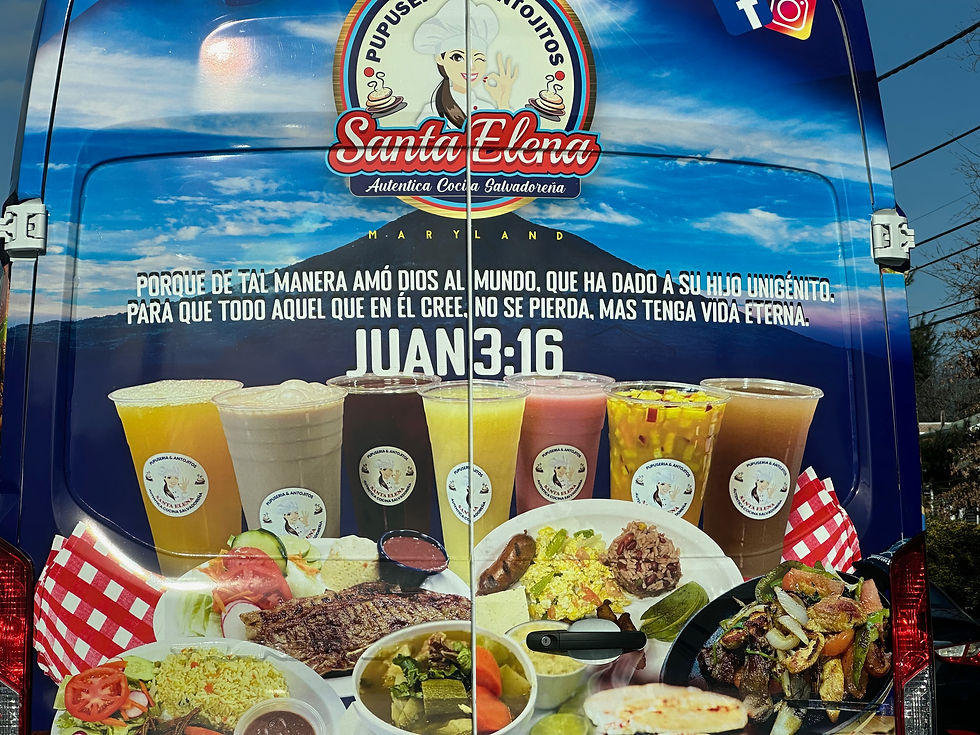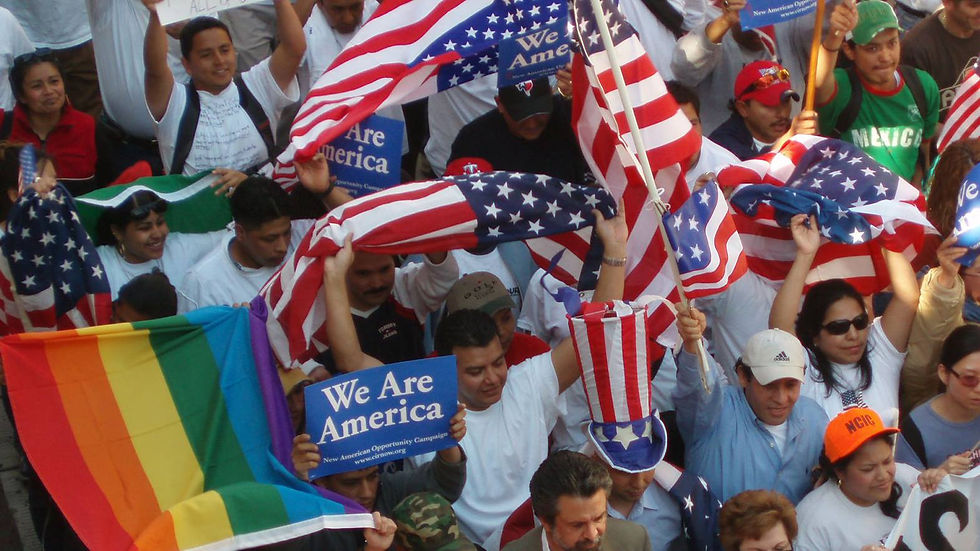Si, Se Puede—Yes, We Can!

"Taking Care of Latino Business," Photo by Tom Diaz
It was a long, hot summer’s day in mid-1960s Florida.
I can see him now, jabbing his right index finger into his chest to emphasize his point.
I can hear him too. It’s as if as if he were talking to me right now. Okay, maybe shouting at me. Emotion, especially anger, always raised the volume of the Spanish ground humming along beneath my father’s stern English baritone.
“Equal Employment Opportunity Commission?” he thundered, pounding his chest again. “I was an individual opportunity commission!”
WHAT THE HELL DID SOME COLLEGE BOY KNOW?
What the hell did I think I knew about opportunity? I was a young know-it-all-college-graduate-ex-frat-boy. Go Gators!
I was standing on the shoulders of this man--this proud immigrant success who was heatedly defending his singular personal achievement against the tiny seedling vine of liberal identity politics. A kudzu vine that would smother initiative and individual success under the enforced narrative of exploited and exploiter, oppressed and oppressor.
No, he didn’t need any damned “commission.”
Nobody worth their weight needed a “commission.”
I should have known better. It was a message I had heard as long as I could remember. Wish in one hand, piss in the other. See which one fills up first. If you want something done, get up off your ass and do it.
Si, se puede.
WHAT DID A 13-YEAR-OLD KNOW THAT WE FORGOT?
He was thirteen-years-old when he left his birth home in the village of Garachico, Tenerife, Canary Islands. His family was poor and there was nothing there for him. Nothing. So, he grabbed life by the collar and yanked real hard until it paid him attention. He had an adventurous lifetime—a saga too big to begin to outline here.

Somehow, this poor but determined kid, my father—Gregorio Adan y Diaz—leaped alone across an ocean and ended up in Mexico. Four years later he clawed his way into the United States. He spent thirty years in the armed forces of his adopted country, won a Bronze Star in the Second World War, retired a Chief Warrant Officer.
Along the way, he met and married my mother, Violet Constance Franco—half-Mongolian, half-Lithuanian, all Siberian Russian, born in Hawaii. Together, they raised an All-American family. Her first language was Russian. His was Spanish. We all spoke English.
The blending of our roots continues to this day—Louisiana Cajun, Irish, Slovak, Slovene, African-American, generic American white, Jewish, Catholic, Protestant, and none of the above.
I like to say about my extended family, “We are the world!”

"We Are America," Photo by Tom Diaz
STILL LIVING THAT DREAM
Was my father an outlier?
Was this bootstrapper as different from the American Latino experience as if he had landed from Mars? Was he delusional to think that he could come to the United States and actually live a good life?
Well, actually, no.
It turns out that Latinos (or “Hispanics” if you absolutely must use a fake word invented by bureaucrats at the Census Bureau in the 1970s) overwhelmingly believe in the American dream. Their faith in America is greater than run-of-the-mill Americans!
Here’s what the Pew Research Center found twelve years ago:
“Hispanics, more so than the general public, believe in the efficacy of hard work. Three-in-four (75%) Hispanics say most people can get ahead if they work hard. By contrast, just 58% of the general public say the same.” [i]
But, wait a minute. Aren’t Latinos just oppressed victims, mashed down and kicked around in a society progressives love to divide into the oppressors and the oppressed?
First of all, let’s be clear. Despite the efforts of activist groups, self-appointed spokespersons, consultants, politicians, and assorted grifters, the people they peremptorily label as “Latinos,” “Hispanics”, and even “Latinx,” don’t think of themselves as any such sort of homogeneous great-big-glob-o-brown-folk.
Here’s Pew on that myth:
“When it comes to describing their identity, most Hispanics prefer their family’s country of origin over pan-ethnic terms. Half (51%) say that most often they use their family’s country of origin to describe their identity. That includes such terms as “Mexican” or “Cuban” or “Dominican,” for example. Just one-quarter (24%) say they use the terms “Hispanic” or “Latino” to most often to describe their identity. And 21% say they use the term “American” most often.”
All those different strains of American immigrants have been quietly doing just what my dad did. And what generations of hard-working immigrants have always done. He built a life. Just like other immigrant groups, Latinos are becoming more working middle-class and certainly less whiny than the glob-o-losers that the elite left projects onto them.
THE OPEN BORDERS ALBATROSS
“The Latino electorate is moving away from the aggrieved immigrant narrative favored by Democrats and toward an assimilating, working-class identity that mirrors its non-Latino counterparts,” political consultant and expert on Latino politics Mike Madrid wrote in the Los Angeles Times last year. [ii]
When wide-open-borders progressive advocates captured the Democratic Party's narrative, they hung an albatross around Joe Biden’s neck. He bought into the fiction of the aggrieved immigrant. (Umm…hello, most of whom are not voters to begin with!)
Come on, man! Give us anybody, open borders rock!
Joe's bad. But, in fairness, he is from Delaware.
University of Arizona political science professor Lisa M. Sanchez “researches ethno-racial disparities in American politics.” Without attributing any other view to her, here is what she said on this narrow point in an interview last October:
“It is a myth that the top issue for the majority of Latinos is immigration policy. The top issue for Latinos is usually the economy. In fact, research suggests that the Latino agenda looks a lot like the agendas of any other racial or ethnic group in the U.S. The Latino agenda consists of the same top issues like the economy, education and healthcare, but is unique in the social and demographic motivations for those agenda items and the preferred policy actions to be taken as a result. To quote the indelicate phrase from the '90s: It's the economy, stupid.” [iii]
Not that I’m calling anyone stupid.

Joe Biden, Photo Licensed from Alamy
More to come from The Second Front.
“Be there, will be wild!” [iv]
[i] Paul Taylor, Mark Hugo Lopez, Jessica Martínez and Gabriel Velasco, Pew Research Center, April 4, 2012, "When Labels Don’t Fit: Hispanics and Their Views of Identity," https://www.pewresearch.org/hispanic/2012/04/04/when-labels-dont-fit-hispanics-and-their-views-of-identity/.
[ii] Mike Madrid, Los Angeles Times, December 3, 2023, "Opinion: Biden’s struggle among Latino voters is real. Here’s why and what he can do about it," https://www.latimes.com/opinion/story/2023-12-03/joe-biden-latino-vote-donald-trump-2024-election-univision.
[iii] Logan Burtch-Buus, The University of Arizona, October 18, 2023, "UArizona political scientist on how the Latino vote may impact 2024," https://news.arizona.edu/story/uarizona-political-scientist-how-latino-vote-may-impact-2024.
[iv] Donald Trump tweet, December 20, 2020.
Comments